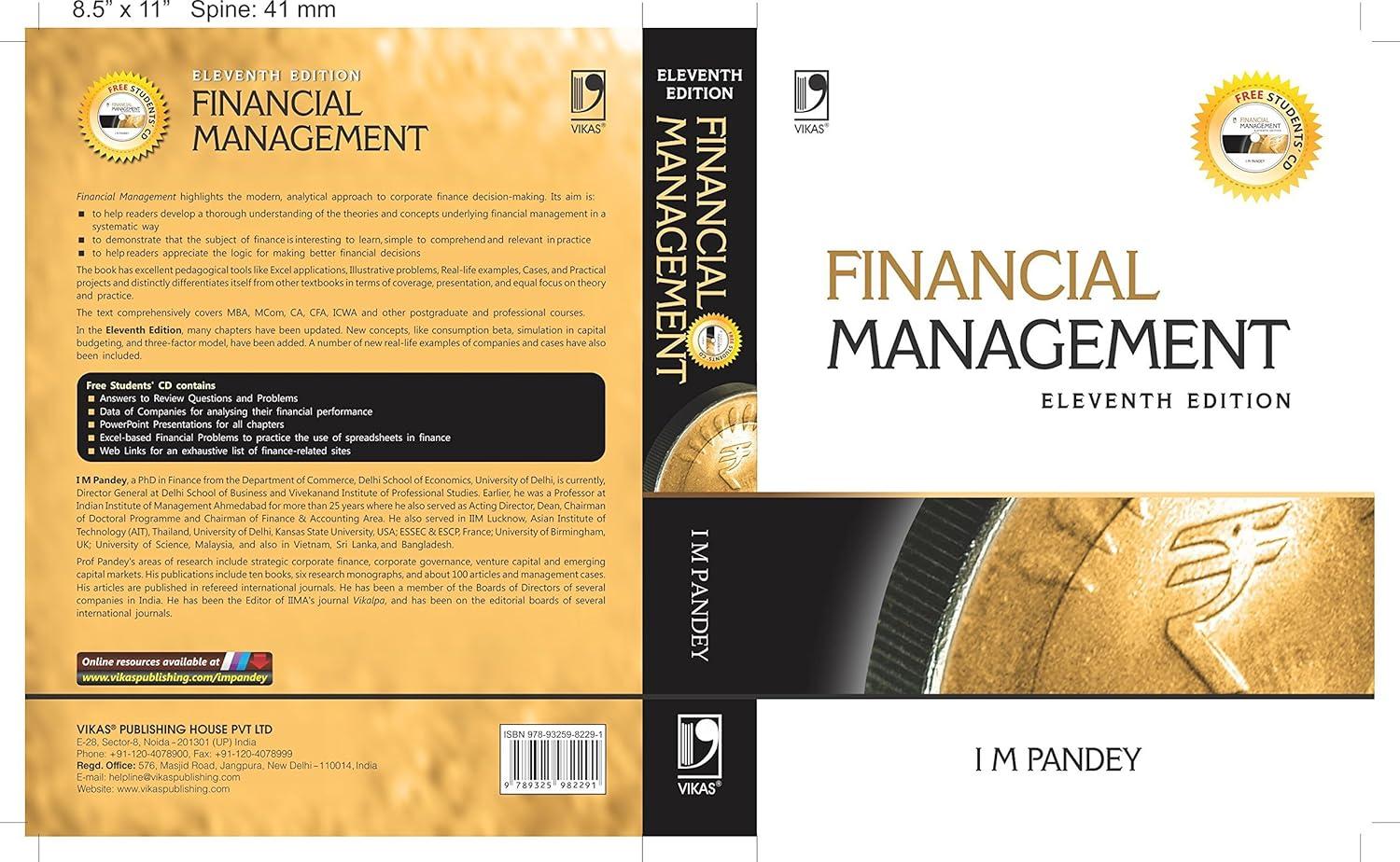Question
Risky Cash Flows The Bartram-Pulley Company (BPC) must decide between two mutually exclusive investment projects. Each project costs $7,000 and has an expected life of
Risky Cash Flows
The Bartram-Pulley Company (BPC) must decide between two mutually exclusive investment projects. Each project costs $7,000 and has an expected life of 3 years. Annual net cash flows from each project begin 1 year after the initial investment is made and have the following probability distributions:
PROJECT A PROJECT B
Probability Net Cash Flows Probability Net Cash Flows
0.2 $7,000 0.2 $ 0
0.6 6,750 0.6 6,750
0.2 7,000 0.2 19,000
BPC has decided to evaluate the riskier project at a 11% rate and the less risky project at a 10% rate.
What is the expected value of the annual net cash flows from each project? Do not round intermediate calculations. Round your answers to nearest dollar.
Project A Project B
Net cash flow $ $
What is the coefficient of variation (CV)? Do not round intermediate calculations. (Hint: B=$6,158 and CVB=$0.78.)
(to the nearest whole number) CV (to 2 decimal places)
Project A $
Project B $
What is the risk-adjusted NPV of each project? Do not round intermediate calculations. Round your answer to the nearest dollar.
Project A $
Project B $
If it were known that Project B is negatively correlated with other cash flows of the firm whereas Project A is positively correlated, how would this affect the decision?
This would tend to reinforce the decision to (BLANK) Project B.
If Project B's cash flows were negatively correlated with gross domestic product (GDP), would that influence your assessment of its risk?
Step by Step Solution
There are 3 Steps involved in it
Step: 1

Get Instant Access to Expert-Tailored Solutions
See step-by-step solutions with expert insights and AI powered tools for academic success
Step: 2

Step: 3

Ace Your Homework with AI
Get the answers you need in no time with our AI-driven, step-by-step assistance
Get Started


